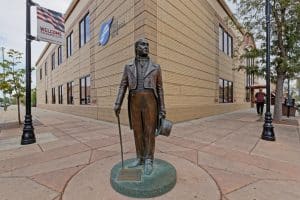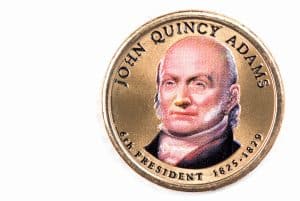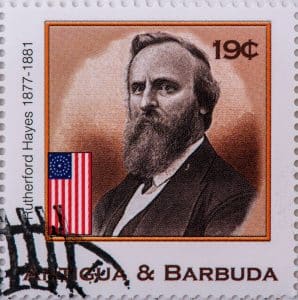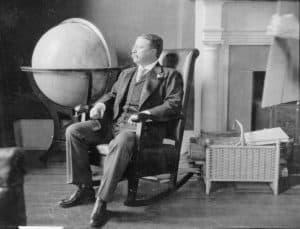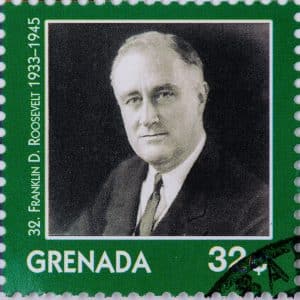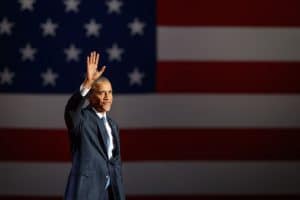The Eight Presidents Who Went To Harvard
Harvard at a glance
A quick look at Harvard will help you understand what kind of university it is. The year 1636 marked the beginning of Harvard University, a private institution. The Harvard Radcliffe Institute and 12 graduate and professional schools make up Harvard University, located in Cambridge, Massachusetts, just outside Boston. There are eight presidents who went to Harvard, making it one of the most successful universities in the country.
Additionally, there is an undergraduate college and the Harvard Radcliffe Institute. Its schools include the top-ranked Business School and Medical School as well as the highly-ranked Graduate Education School, School of Engineering and Applied Sciences, Law School, and John F. Kennedy School of Government.
In 1636, the General Court of the Massachusetts Bay Colony in colonial America established the private, non-profit institution now known as Harvard University. According to the university’s archives, the school’s original purpose was to provide education for members of the clergy. The Puritan minister John Harvard, who in 1638 bequeathed his 400-book library and half of his estate to the young school that would later bear his name, is the inspiration for the name Harvard. In 1642, when Harvard held its first graduation ceremony, nine students received their degrees.
The vast library system at Harvard University is home to the oldest collection in the United States and is the largest academic library in the world. In addition to academics, Harvard’s athletic teams participate in the Ivy League and have a traditional football rivalry game against Yale every year. A significant component of student life is the provision of on-campus residential housing, consisting of 12 undergraduate houses and a central location on the campus for first-year students.
Why study at Harvard?
So, why choose Harvard for your education? Despite knowing that presidents went to Harvard, the decision to attend Harvard University, which is widely considered among the most prestigious and well-known educational institutions in the world, can be made for various reasons. Here are some examples:
Excellence in education: Harvard University is consistently ranked among the best universities in the world and is well-known for the demanding academic programs it offers. The university has a well-deserved reputation for turning out graduates who are among the most successful and accomplished in the world. Its faculty comprises some of the most prominent experts in the world across a wide range of disciplines.
Resources and facilities: Harvard has some of the best options when it comes to the resources and facilities that are made available to students. The libraries are extensive and well-stocked, and any other institution’s research opportunities are unmatched. The university offers its students the opportunity to participate in various extracurricular activities and clubs outside the classroom.
Opportunities to form connections: Harvard University is well known for its robust alumni network, which can serve as a helpful resource for students as they move forward in their careers. Being a part of the Harvard community makes it possible to gain access to internships, job opportunities, and connections that may not be available in other environments.
In recent years, Harvard has made significant strides toward becoming more diverse and inclusive, focusing on recruiting and supporting students from various backgrounds. This is because Harvard strongly emphasizes diversity in its student body. For that reason, it is an excellent environment to meet people from all over the world and gain knowledge from their distinct viewpoints and experiences.
A degree from Harvard is highly esteemed in various professions and can be an extremely useful qualification on a resume or curriculum vitae (CV). Attending Harvard is a once-in-a-lifetime opportunity that can open doors and provide students with a lifelong source of pride and accomplishment. This is because Harvard is one of the most prestigious educational institutions in the world.
Alumni of Harvard who became President of the United States
John Adams
John Adams was a native of Massachusetts, where he also received his early education, and in 1751, at the age of sixteen, he enrolled at Harvard. He was the first president to be an alumnus of Harvard. As a result of reading the works of ancient authors such as Plato and Cicero, he developed an interest in education and evolved into quite the intellectual.
After four years, he received his Bachelor of Arts degree and graduated. Adams’s father wanted him to become a minister, but Adams was determined to pursue more noble work, desperate for a reputation like the men of Harvard who came before him.
Adams decided to pursue a career in law and subsequently went back to Harvard, where he graduated with a Master of Arts degree in 1758. When John Adams was finally elected as the second president of the United States in 1797, all of his arduous labor was finally rewarded. In addition to that, he had previously held the position of first vice president.
John Quincy Adams
Another president who went to Harvard was John Quincy Adams. He received most of his education from private tutors while growing up in Massachusetts. At age ten, in 1778 he traveled to Europe with his father, John Adams. He attended a private school in Paris and the University of Leiden in the Netherlands.
John Adams was the sixth president of the United States. He worked for an American diplomat even while stationed in Saint Petersburg for some time. He continued his travels throughout Europe until 1785, when he returned to the United States to continue his education at a higher level. Following his father’s footsteps, he did exceptionally well at Harvard and earned a Bachelor of Arts degree in 1787, placing second in his class of 51 students.
After that, he pursued a career in law and, in 1790, passed the bar in Massachusetts. Before entering politics, he began his career as an attorney in Boston by establishing his practice. From 1825 to 1829, John Quincy Adams carried on the presidential legacy of his father by serving as the sixth president of the United States of America.
Rutherford B. Hayes
After finishing high school in Connecticut at a boarding school that prepared students for college, Rutherford B. Hayes moved back to his home state of Ohio and enrolled at Kenyon College the following year. Before graduating as the valedictorian of his class, he developed an interest in Whig politics while he was there.
Hayes began his legal education in 1843 by enrolling at Harvard Law School. During the breaks in his studies, he went to hear renowned former students of the university lecture, such as John Quincy Adams. After earning his Laws degree, he established his legal practice and began working as an attorney.
After serving as a major during the American Civil War, he pursued a political career. Hayes won the election to become the nineteenth president of the United States in 1877. This has made him the third of the presidents who went to Harvard. As a result of his decision not to run for reelection, he was only in office for one term.
Theodore Roosevelt
During his formative years, Theodore Roosevelt received his education at home. In 1876, he decided to pursue his interest in natural science by enrolling at Harvard University. He is arguably the most famous among the presidents who went to Harvard. During his time at the university, he participated in various academic organizations, including the literary, natural history, and finance clubs.
He was also an exceptionally talented athlete. On the other hand, his classmates had the impression that he was quite strange. This impression was bolstered by the fact that he held “radical” beliefs regarding women’s equality and that he kept a small zoo in his room. Regardless, in 1880 he received his Bachelor of Arts degree magna cum laude after graduating with honors.
In the end, Roosevelt decided against pursuing higher education in natural science. Instead, he returned to New York, where he enrolled at Columbia Law School. There, he developed a stronger interest in history and naval strategies, ultimately leading to him dropping out of school to pursue a career in politics. In the end, he would be successful, eventually holding the position of the 26th president of the United States from 1901 until 1909.
Franklin D. Roosevelt
Franklin D. Roosevelt’s father and his cousin both received their degrees from Harvard, so it was natural that he would follow in their footsteps. He was a self-starter, but he was always more concerned about his social standing than the grades he received in school. While attending college, he was a fraternity member, worked as a reporter for the school newspaper, captained the freshman football team, and was also a cheerleader.
Despite these activities, he maintained a grade point average of C. After his distant cousin Theodore was elected president, Franklin D. Roosevelt became more determined than ever to dominate the social scene at Harvard by gaining admission to the Percellian, the most exclusive club on campus. In the end, he was turned down, which served as a source of annoyance for him for many years. Despite his resentment, he received his Bachelor of Arts degree in history from the university in 1903.
The following year, he enrolled in Columbia Law School, but he left in 1907 after passing the New York bar exam, so he missed a year of school. In 1908, he joined a well-known law firm, but in time, he followed the path of the other individuals on this list and transitioned into politics instead. More than two decades after his cousin, Franklin Delano Roosevelt (FDR), became the 32nd president of the United States. He held this position until April 1945, missing Germany’s surrender from the war by only a few weeks. FDR was succeeded as president of the United States by Harry S. Truman (HR).
John F. Kennedy
John F. Kennedy, born into what is commonly referred to as America’s royal family, was groomed for politics at an early age. In 1936, following a brief two-month stint at Princeton, he registered for classes at Harvard. Despite being one of the presidents who went to Harvard, he had some difficulty succeeding academically because he was always in his brother Joe’s shadow.
He did not develop an interest in academics until much later in his education at Harvard when he began to study political philosophy. Before starting his senior year, he traveled throughout Europe and the Soviet Union to gather information for his honors thesis, which was going to be about Britain’s participation in the Munich Agreement.
This thesis would eventually be turned into the book Why England Slept, which became a best-seller. In 1940, John F. Kennedy received his Bachelor of Arts degree in government from Harvard University, with a concentration in international affairs. He would go on to win the election in 1960, exactly twenty years later, ultimately becoming the youngest president ever elected in the history of the United States of America.
George W. Bush
In more ways than one, George W. Bush followed in his father’s footsteps, beginning with his enrollment at the same university his father had attended. In 1968, he received his degree in history after completing his studies. His application to the University of Texas School of Law was not accepted, so he enrolled at Harvard Business School instead.
In 1975, he earned a Master of Science degree in business administration, regardless of the circumstances. Before running for president, Bush got his start in business in the oil industry, rather than beginning his career, as many others had before him, in the legal profession. In 2001, less than ten years after his father’s presidency ended, he began the first of two terms as president.
Barack Obama
One of the last presidents who went to Harvard was Barack Obama. Obama spent his childhood in Hawaii, where he attended a high school that prepared students for college. He later moved off of the island state to attend Columbia University. He received his degree in international relations in 1983. After spending some time in Chicago, he pursued a legal education at Harvard in 1988. By the end of his second year, he was an outstanding student who had become the first black president of the Harvard Law Review.
As a result of this accomplishment, the media took notice of him, and he was offered a publishing deal. In 1991, Barack Obama received his Doctor of Jurisprudence degree from the prestigious Harvard Law School, Magna Cum Laude. After that, he spent the next twelve years teaching constitutional law at the University of Chicago Law School.
During that time, he was elected to the Illinois Senate in the middle of his tenure. In 2009, he made history by becoming the first person of color to be elected president of the United States. He served in that capacity for two full terms.
Now that you have a better understanding of Harvard University, admissions should be next in your mind. To ensure that you get into Harvard, you can get guidance from AdmissionSight. With ten years of expert experience, AdmissionSight can help you get into Harvard University. You can talk to our experts today about setting up an initial consultation.





